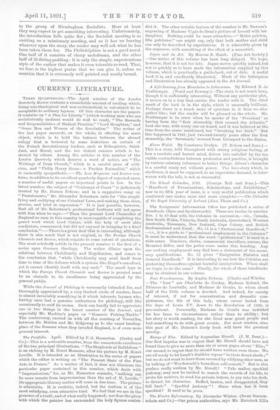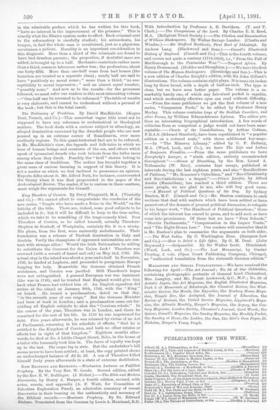in the admirable preface which he has written for this
book, "have no interest in the improvement of the prisoner." This is exactly what the Elmira system seeks to effect. Each criminal sent to the reformatory is carefully studied ; his antecedents, his temper, in fact the whole man is scrutinised, just as a physician scrutinises a patient. Heredity is an important consideration in this diagnosis. More than a third of the criminals are found to have had drunken parents ; the• proportion, if doubtful cases are added, is brought up to a half. Mechanics contribute rather more than a third, common labourers rather less ; the professions, about one forty-fifth. More than one-half come from bad homes (the homeless are treated as a separate class) ; nearly half are said to have "positively no moral sense ; " more than a third, "no sus- ceptibility to moral impression ; " and an almost equal number, "possibly none." And now as to the results—for the processes followed, we must refer our readers to this most interesting volume —" One-half can be assumed to be reformed." The table of results is very elaborate, and cannot be understood without a perusal of the book ; but this is the total result.



































 Previous page
Previous page